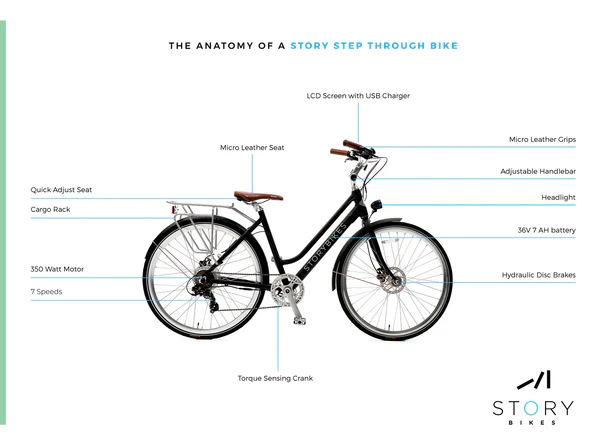
Electric bikes, or e-bikes, have gained a lot of popularity in recent years as a convenient and eco-friendly way to get around. They combine the benefits of traditional cycling with the power of an electric motor, making it easier for riders to travel longer distances, climb hills, and even carry more weight. One of the most important factors to consider when choosing an e-bike is the motor's wattage. In this article, we'll break down what watts mean for e-bike motors, explore the different options available, and discuss their advantages, disadvantages, and legal considerations.
Understanding Watts in E-Bike Motors
Watts are a unit of power that measures how much energy is used over time. In the context of e-bikes, the wattage of the motor determines how much assistance the rider receives while pedaling. A higher wattage means more power, which can translate into faster acceleration and better hill-climbing ability. However, higher wattage also means increased battery consumption and potential restrictions in certain regions.
Common Wattage Options and Their Pros and Cons
There are several common motor wattages found in e-bikes, each offering different levels of performance and efficiency:
- 250-watt motors: These are typically found on entry-level e-bikes and offer a good balance between cost and performance. They are efficient in terms of battery usage but may struggle with steep inclines or heavy loads.
- 350-watt motors: This is one of the most popular choices for everyday use. They provide enough power for most riders without draining the battery too quickly. Many places set 350 watts as the maximum legal limit for e-bikes, making them a safe and widely accepted option.
- 500-watt motors: These are more powerful and ideal for hilly terrain or heavier riders. However, they consume more energy and may not be allowed in all areas.
- 750-watt motors: These are the most powerful e-bike motors available, offering high speeds and strong acceleration. They are often used for off-road or long-distance riding but tend to be less regulated and may require special permits.
Regulatory Considerations for E-Bike Motor Power
E-bike regulations vary by country and region. In some places, e-bikes are treated like regular bicycles, while in others, they are classified as motor vehicles and must meet stricter safety and performance standards. It’s essential to check local laws before purchasing an e-bike, especially if you're considering a higher wattage model.
Why 350-Watt Motors Are a Smart Choice
For many riders, 350-watt motors strike the perfect balance between power and efficiency. They provide enough assistance to make riding easier without draining your battery too quickly. This means you can ride further on a single charge and spend more time enjoying the journey. Plus, 350-watt motors are often the legal limit in many regions, so you won’t have to worry about violating local regulations.
Another great advantage of 350-watt motors is that they still allow you to feel like you’re actively riding a bike. You can pedal, get some exercise, and enjoy the outdoors, while the motor gives you a boost when needed. This makes them ideal for commuters, fitness enthusiasts, and anyone looking for a versatile and practical e-bike.
If you're looking for a stylish and affordable 350-watt e-bike, Story Bikes is a fantastic choice. They offer a range of models that combine performance, comfort, and modern design to suit a variety of lifestyles and needs.
60 Television,60 Inch Hotel Smart Tv,Digital Television,60 Inch Smart Television
Jiangsu Hengye Precision Technology Co.,Ltd , http://www.hengyejmtv.com
